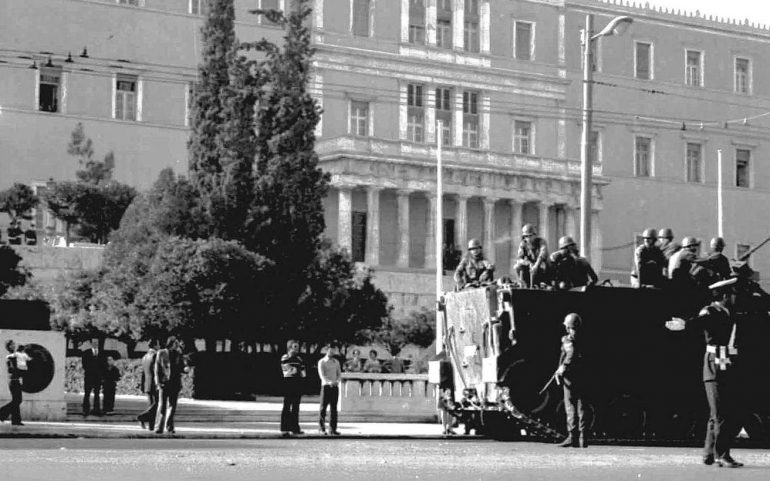The period before the black seven years of the junta, with the one that followed the dictatorship, has a lot in common. One of them, perhaps the most important, as the climate of those years shows, is the fear that was spreading in the country that "a military movement is imminent."
For both periods, the fears turned out to be completely true. The only difference is that in the first one junta imposed while in the second, the conspirators were the ones who finally fell asleep.
This is the reason, after all, that the last "military movement" to date attempted in Greece has acquired the derogatory title "the pajama coup"!
The newborn coup
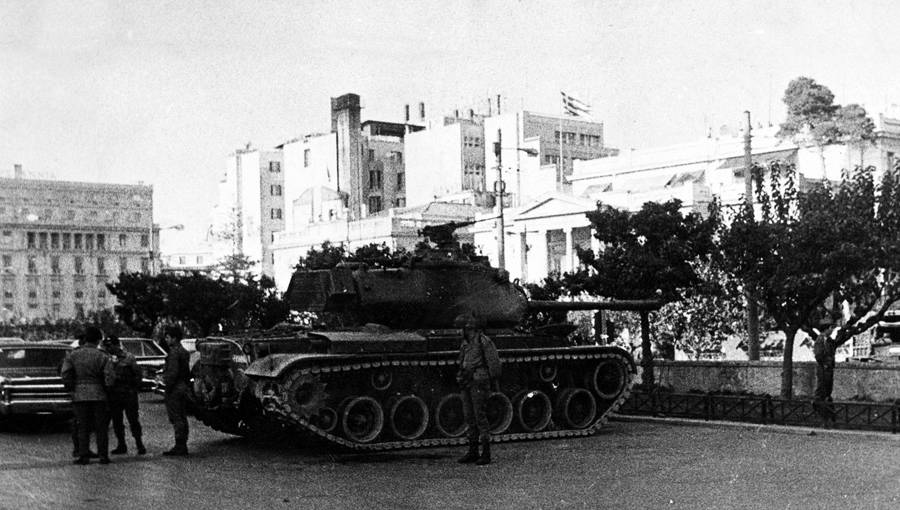
From February 1973 and the events of Nomiki, the cool political analysts noticed that the days of the junta were now numbered. The people had overcome their fear of the military and police hordes of dictators. This belief was confirmed in a bloody way in all insurgent events in November of the same year at the Polytechnic.
The countdown for the regime had begun. His fall Papadopoulos, his "replacement" by the cruel Ioannidis and the betrayal of Cyprus, bring the end of the black seven years in the summer of 1974.
The military is handing over power to politicians and Greece is trying to enter a period of normalcy. However, things were not easy as many juntas (the so-called "droplets") remained within the state apparatus, some of them even in key positions.
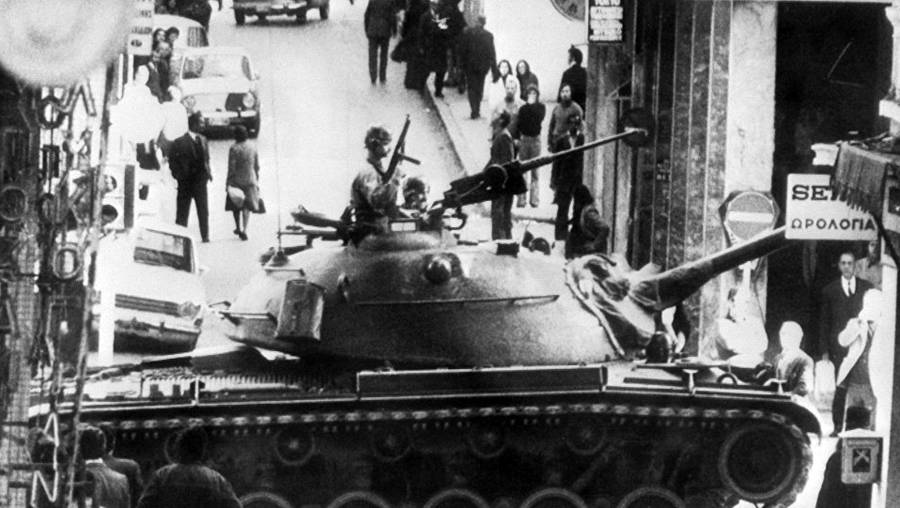
The "decontamination" was progressing slowly. The people demanded the exemplary punishment of all, even those who simply liked the dictatorship. As long as this was not done, the fear of a new coup grew.
Democracy, after all, still took its first steps and the wounds were still open.
The critical two years 1974-1975
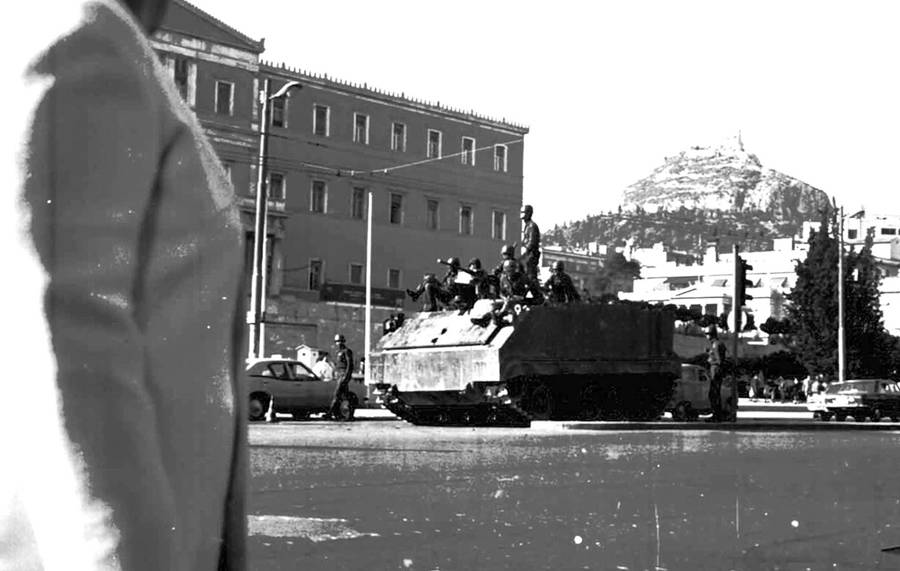
From July 1974, when the junta fell, until the first months of the following year, the country was living in a time when political time was extremely concentrated. The State had been resolved in favor of the Abbasid Republic and our country had acquired a democratically elected government under Constantine Karamanlis and everything showed that the dark past, easily or difficultly, would permanently enter the time warp of history.
A critical date is that of January 17, 1975, when Parliament approved the famous Fourth Resolution, which finalized what was a popular demand: That "democracy has never been violated," described as a coup the overthrow of democracy on April 21, 1967 (no). as a revolution that creates law) and thus paved the way for the criminal prosecution of its protagonists dictatorship.
Immediately after the resolution was issued, the leaders of the junta, George Papadopoulos, were remanded in custody. Stylianos Pattakos, Nikolaos Makarezos, Dimitrios Ioannidis, Michail Roufogalis, Ioannis Ladas, Konstantinos Papadopoulos and Theodoros Theofilogiannakos.
This, however, seems to have activated the "drops" that tried to play their last card.
The "February 24 movement"
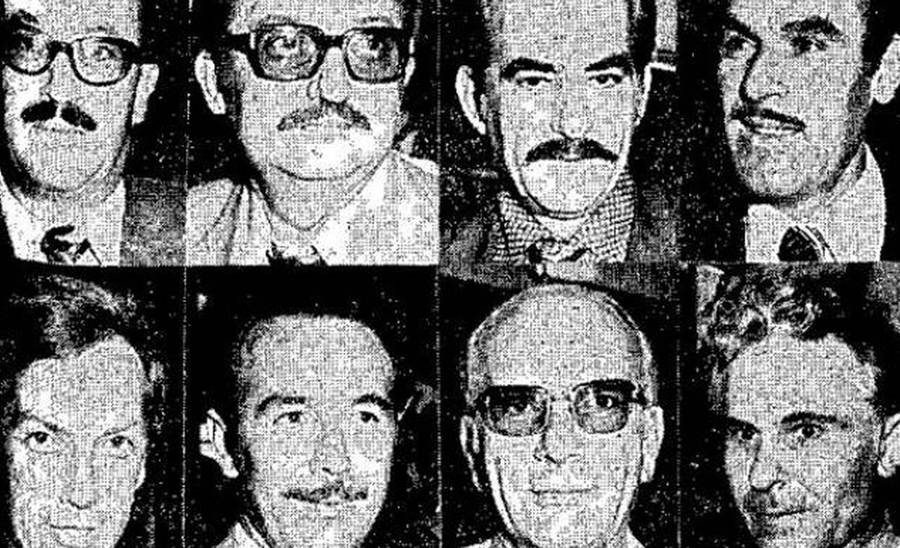
A handful Ioannidis Army officers (in action or not), after the harsh dictator's pre-trial detention, decided to react. They took action to do the only thing they could: to stage a coup.
The group was led by Lieutenant General Pavlos Papadakis, Brigadier Generals Dertilis and Ioannis Maniatis and Major Paraskeva Bolaris. According to journalistic reports of those days, the initiation of willing officers serving in units in Attica and other parts of the country began immediately.
The conspirators' meetings took place in apartments in Athens, while the last one took place on Sunday, February 23, in Larissa, because a large number of initiated officers were serving in the Army headquarters there.
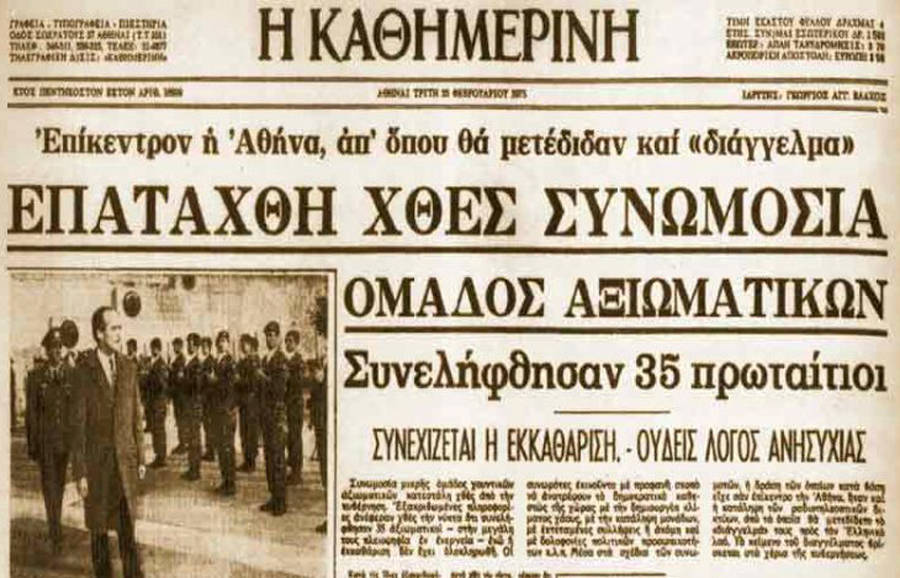
The participants planned the occupation of military units in Athens, Thessaloniki, Larissa, Veria, Kozani and Naoussa, with the aim of negotiating, from a position of power, a general amnesty for the imprisoned junta leaders. Specifically for the Athens area, the plan provided for the Parliament to be surrounded by armored vehicles, the occupation of the buildings of EIRT and YENED and the transmission of a message to the Greek people and possibly, if circumstances required, the arrest of important public figures. .
The "pajama coup" that ended before it even began
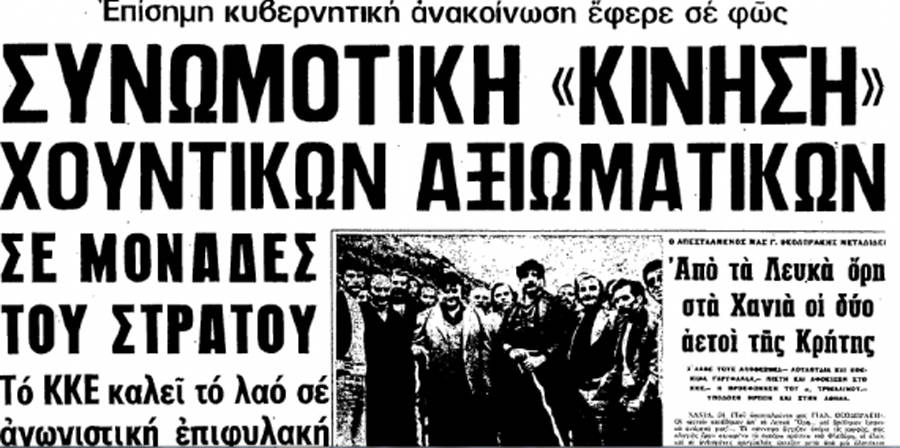
As already mentioned, however, there was fear of a coup. And it existed not only among the people but also in the political leadership of the place. And this time no one wanted to fall asleep like it did about eight years ago.
The Minister of Defense, Evangelos Averof-Tositsas, had in critical positions within the army his own people who informed him about everything. A similar role was played by KYP agents whose main mission was to control the movements of the host.
At noon on February 23, 1975, the conspirators gathered in Larissa to hold their last meeting before the coup took place. Among them, however, is a KYP agent, who immediately after the meeting informed his superiors that the conspirators were ready to proceed with the implementation of their plan and they in turn conveyed the information to government officials.
According to some sources, during the final stage of the revelations, the government was informed by the then director of the Security Department of the KYP, Major Ioannis Alexakis, who was assigned the task of monitoring the movements of host elements in the army.
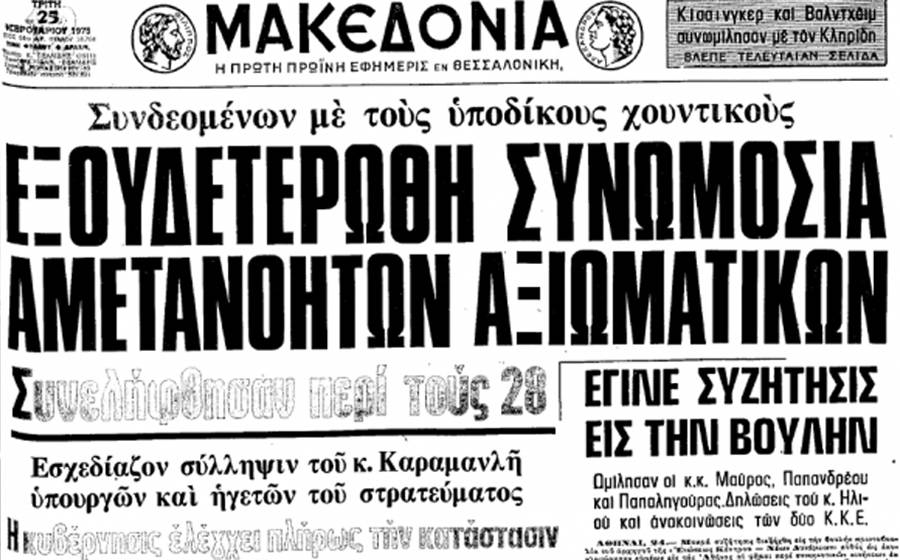
According to another version, as mentioned in the book "Forgotten headlines, reports from modern Greek micro-history" by Giannis Ragos (POLARIS Publications), the army intelligence network was mobilized when the EAT / ESA torturer Hatzizisis, who had meanwhile been arrested and was interrogated for his actions during the dictatorship, he told his interrogator that "where you are sitting, in a few days I will sit". This direct threat did not go unnoticed.
Whatever happened, the only thing that is certain is that at noon on Monday, February 24, everything was over. A meeting under the chairmanship of the Prime Minister is in full swing in the building of the Ministry of Education on Mitropoleos Street Konstantinou Karamanlis. Suddenly, Averoff enters the meeting room unannounced, who, obviously upset, apologizes to those present and bends over to the prime minister's ear, in order to whisper something extremely serious to him.
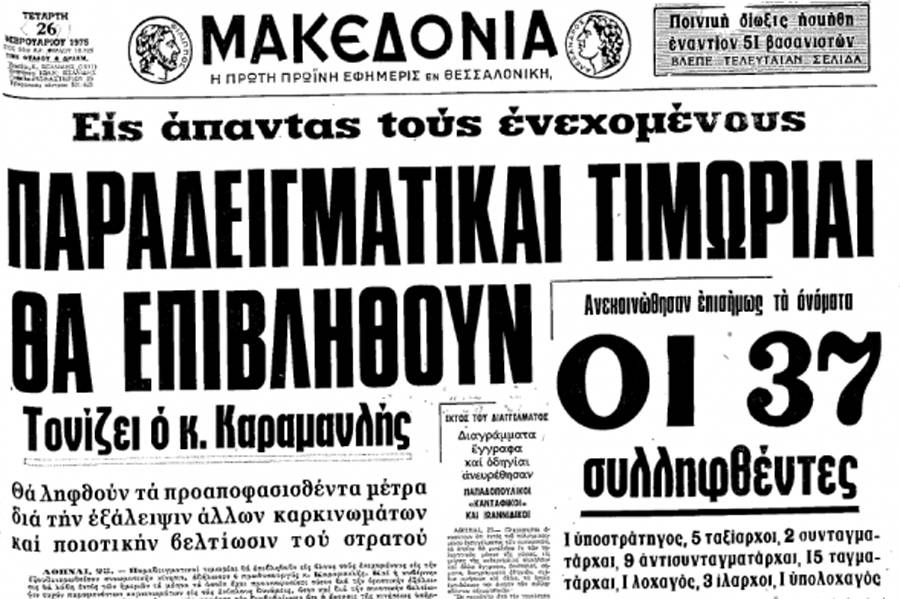
Immediately, Karamanlis disbanded the meeting and, accompanied by Averoff, hurriedly left the ministry, heading to the Pentagon, where they had already gathered and the commander of the Armed Forces was waiting for him. On the way, Averoff informs him that he has already declared a partial alert in the army, but during the meeting that follows, it is decided, among other things, to put him in a state of general alert.
At the same time, Athens is flooded with an orgy of rumors and conflicting scenarios: some claim that war has been declared in the Aegean, others that an assassination attempt was made on Archbishop Makarios by EOKA II in Cyprus, and others that a movement of Ioannina government officials has been launched. The leaflets are circulating rapidly in cafes and newsrooms, while some groups of students gather at university schools chanting "new Polytechnic." In the evening of the same day, the Ministry of National Defense issued a detailed statement on what exactly had happened and put an end to all rumors.
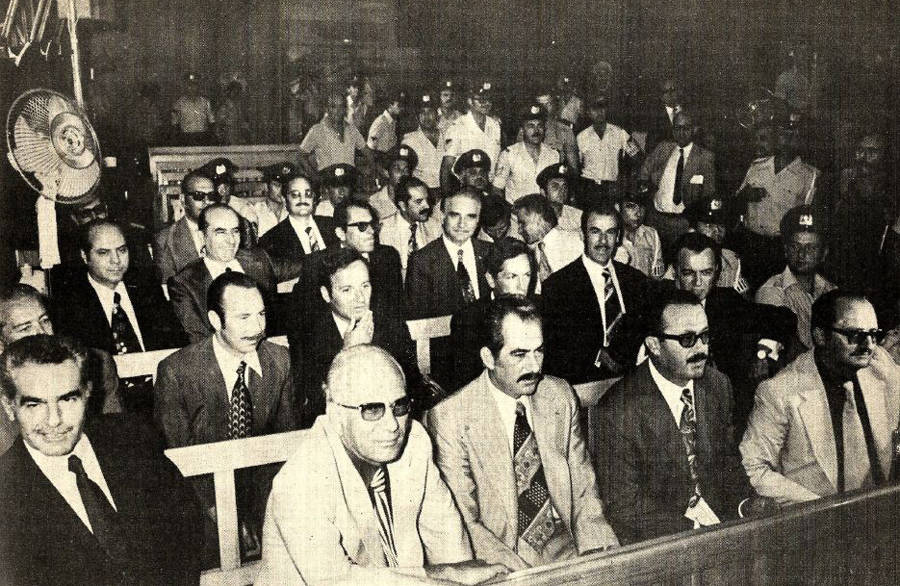
The investigation that followed revealed that the leader of the conspiracy at the time was the former dictator Dimitrios Ioannidis, who was imprisoned in Korydallos, with Lieutenant General Pavlos Papadakis, Brigadier General Nikolaos Ndertilis, Georgios Larcotikis Demitagitas Sioutsousis, Andreas Kondylis, as leaders. Majors Aristides Palaini, Athanasios Gerakini, Athanasios Perdikis and Paraskeva Bolari.
A total of 37 officers were arrested. Twenty-one were sentenced to life in prison by the Athens Permanent Military Court in Rouf, 21 to 14 to 4 years in prison, and the remaining seven were acquitted.
